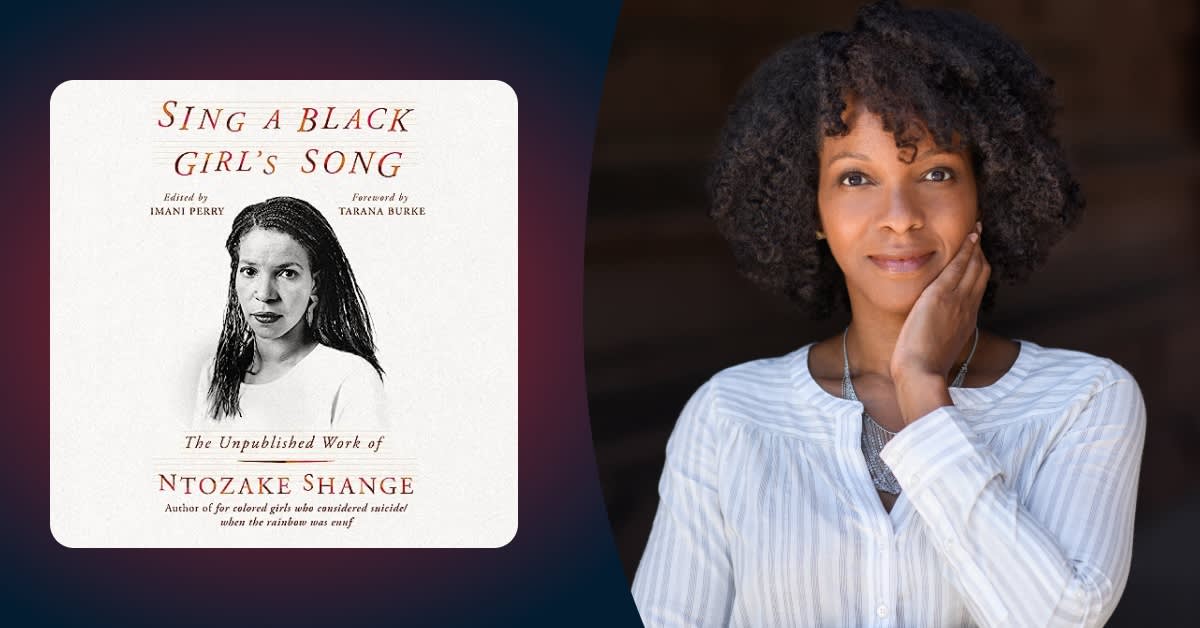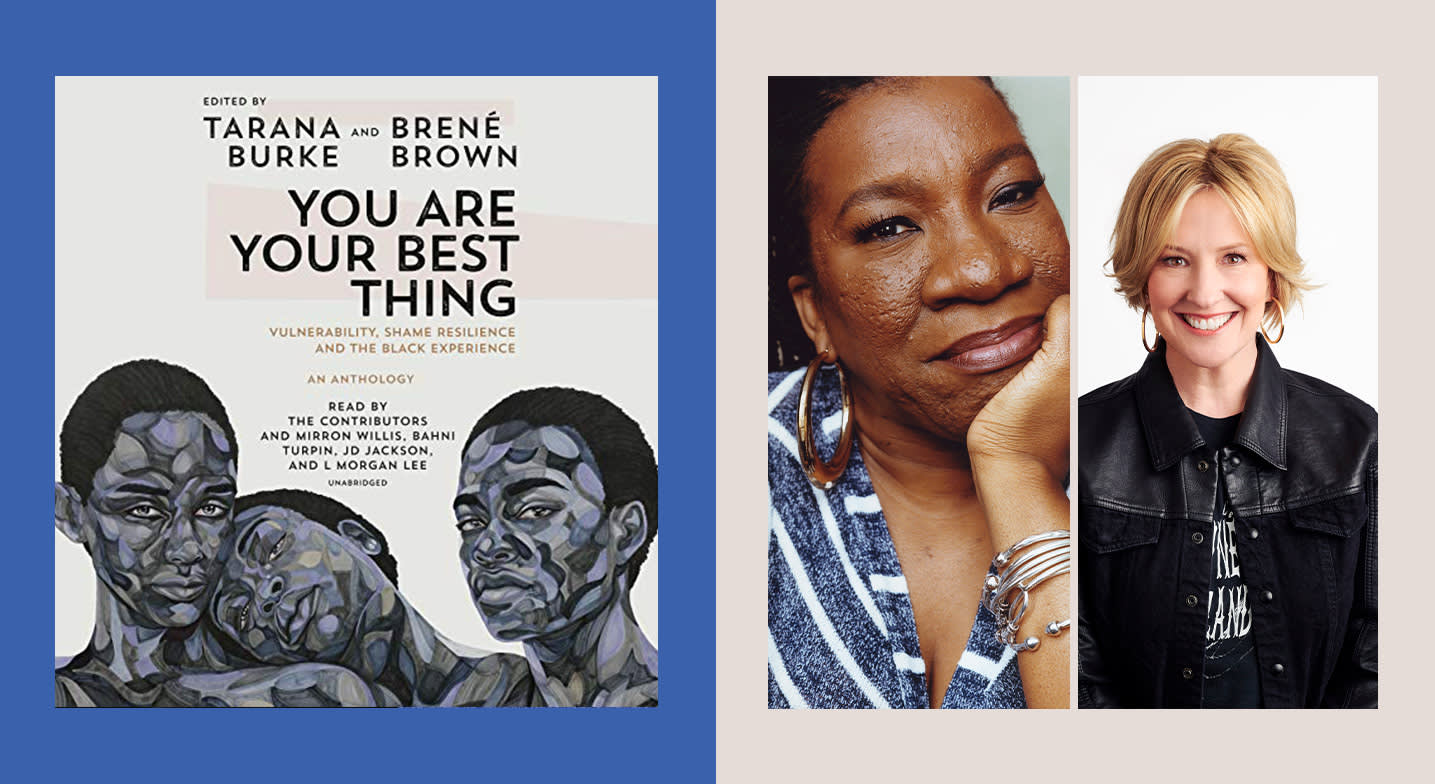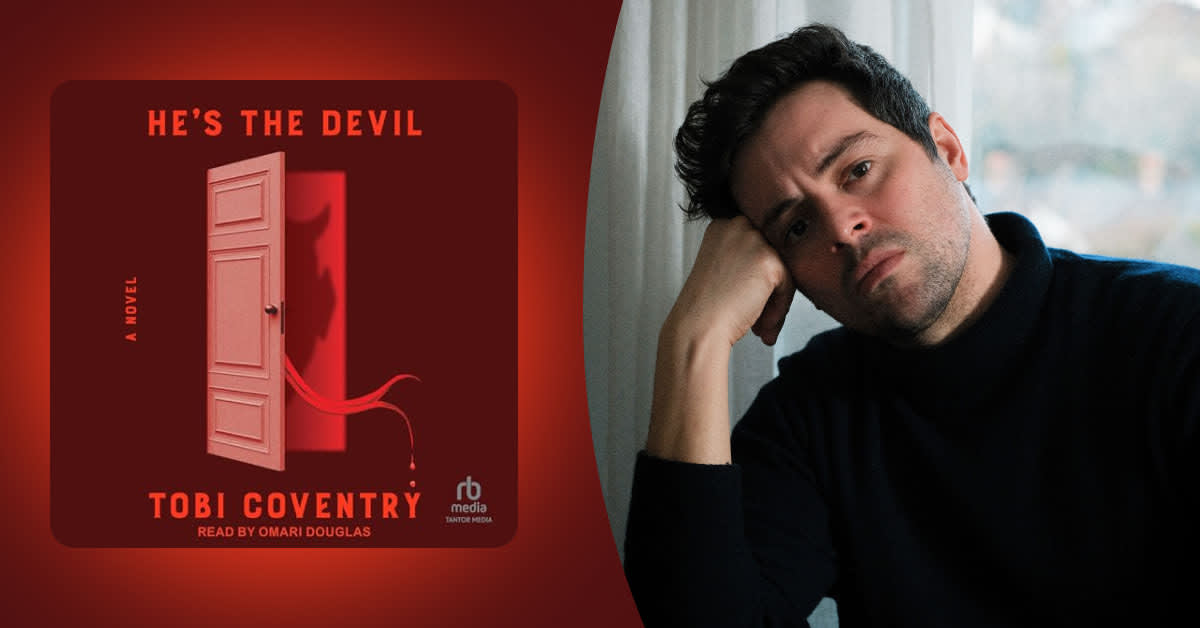Listeners should be familiar with Ntozake Shange's 1976 groundbreaking choreopoem for colored girls who have considered suicide / when the rainbow is enuf, which was adapted into a movie by Tyler Perry and recently revived on Broadway, winning Tony Awards for the production. With Sing a Black Girl’s Song, a collection of Shange's previously unpublished poems, essays, and plays, edited by Imani Perry, many will discover a trove of inspiration and insights related to the African diaspora, feminism, and the performing arts.
“I hope this new collection leads to a revived Shange moment,” Imani Perry states. “She published so much and in so many forms. This is new, but it also fits inside a magnificent body of work.”
Audible: After Shange’s death in 2018, you shared that you first encountered her “Lady in Green” monologue as a young girl. What did her work mean to you personally?
Imani Perry: I grew up during the Black women's literary renaissance, and I consider that one of the great gifts of my life. There were so many books and poems and stories all around, giving me a roadmap for coming of age. Shange had a particular resonance because her work was so often shared collectively. She not only gave voice to so many Black women's stories—she encouraged everyone to embody them, together. I remember seeing her in a dance performance when I was around eight years old as well, and realizing that one could be a great artist and also stay committed to being one of the collective. That was deeply inspiring and instructive.
Activist Tarana Burke, founder of the #MeToo movement, has provided the foreword for the collection. Why was it important to have her provide her insights for those engaging with this text?
Tarana is one of my dearest friends and the person I know who knew Shange the best (besides her daughter, Savannah, who is magnificent in her own right). And she treasured Shange so deeply. And in so many ways, they devoted their lives to the same thing—the use of creative resources to heal and celebrate Black girls and women. So, it seemed like a perfect fit.
This collection spans genres—featuring poems, essays, plays, and short stories—and all of Shange's work demands to be performed, so it's exciting that there is such a plethora of voices who narrate these pieces, including Alfre Woodard, Robin Miles, and even her daughter, Savannah Shange. What was your involvement in the selection? Any standout moments listening to these talented women inhabiting Shange's words?
I did not select the voices—the credit for that goes to the HBG editorial staff, who also deserve credit for bringing the project to me. But it really is exactly how she would have wanted it, I think. A chorus of beautiful Black voices.
You’ve written about the “terror and grace of raising Black children in the United States.” What do you hope this collection and the topics it covers can offer as a response? Do you see Shange’s work as offering lessons in resilience?
Part of why Shange has always resonated with me is that, no matter how difficult a topic she covered, she always reveled in the beauty of Black life. Language, music, art, dance, laughter, ritual—she knew Black cultures and traditions intimately and never let us forget their power and beauty. When so many people seem to want to reduce us to our suffering, Shange's work is a beautiful refusal. I think my own work belongs in the same tradition.
For listeners who may be inspired to discover more Black feminist works, do you have any recommendations so they can expand their knowledge?
There's so much; it is hard to know where to start. But definitely Tarana Burke's memoir Unbound, and anthologies of Black women's writings like Margaret Busby's Daughters of Africa, Claudia Tate's Black Women Writers at Work, Beverly Guy-Sheftall's Words of Fire, and Barbara Smith's Home Girls. The anthologies are really special because they allow you to access so many voices and perspectives.
Last question: Do you have a favorite listen of 2023 to recommend, and why?
Well, I am partial to my own Audible Original, A Dangerously High Threshold for Pain, because I see it as a gift to people living with chronic illnesses. I also love Jesmyn Ward's "Mother Swamp" and Elizabeth Acevedo's Family Lore, which I both listened to and read in book form. That story of a family of Dominican women is so rich with language that it is a special gift to listen to it.







